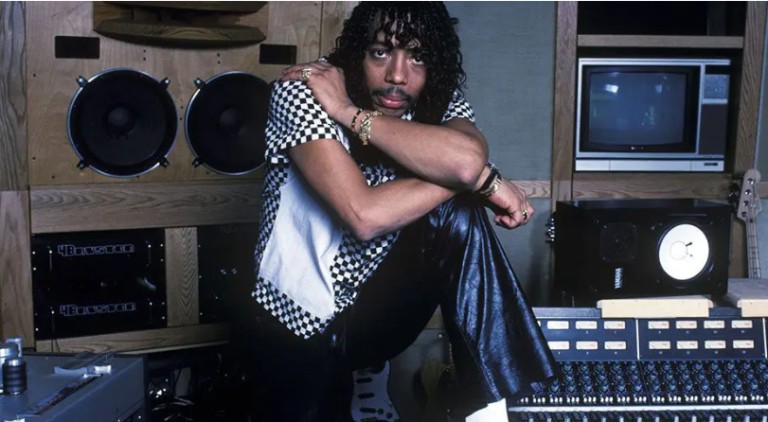
“𝘼𝙣𝙜𝙚𝙡 𝙤𝙛 𝙩𝙝𝙚 𝙈𝙤𝙧𝙣𝙞𝙣𝙜” – 𝙅𝙪𝙞𝙘𝙚 𝙉𝙚𝙬𝙩𝙤𝙣
“Angel of the Morning” is a song originally written and composed by Chip Taylor. It has been covered by various artists over the years, but the version by Juice Newton, released in 1981, became the most successful and well-known rendition.
Background and Inspiration
Chip Taylor wrote “Angel of the Morning” in the 1960s, and it was first recorded by singer Evie Sands in 1967. The song’s lyrics depict a fleeting romantic encounter in the early hours of the morning, where the protagonist reflects on the bittersweet nature of love and desire.
Juice Newton’s version of “Angel of the Morning” was released on her album “Juice” in 1981. It became a major hit, reaching number 4 on the Billboard Hot 100 chart and achieving international success. Newton’s rendition of the song is notable for its country-pop sound, which blended elements of rock and folk, appealing to a wide audience.
The lyrics of “Angel of the Morning” explore themes of passion, regret, and longing. The protagonist addresses a lover who has become an “angel” to them, symbolizing both the beauty and the pain of their relationship. The chorus, with its iconic refrain “Just call me angel of the morning, angel,” captures the emotional intensity and vulnerability of the song’s theme.

Musically, Juice Newton’s version of “Angel of the Morning” features a gentle acoustic guitar melody, soft percussion, and Newton’s smooth vocals. The song’s production emphasizes its country-pop roots while incorporating elements of soft rock, creating a melodic and evocative listening experience.
Reception and Legacy
Upon its release, Juice Newton’s rendition of “Angel of the Morning” received widespread acclaim and commercial success. It became a staple on radio playlists and remains one of Newton’s most enduring hits. The song’s popularity has led to its inclusion in various compilations and soundtracks, solidifying its legacy as a classic in popular music.
Conclusion
In conclusion, “Angel of the Morning” by Juice Newton is a poignant and timeless song that explores the complexities of love and desire. With its heartfelt lyrics, melodic arrangement, and Newton’s emotive vocals, the song continues to resonate with listeners and remains a beloved favorite in the realm of country-pop and soft rock. “Angel of the Morning” stands as a testament to Juice Newton’s musical talent and her ability to capture the emotional depth of a song that has touched generations of music lovers.
Video:

“𝙈𝙞𝙨𝙪𝙣𝙙𝙚𝙧𝙨𝙩𝙖𝙣𝙙𝙞𝙣𝙜” – 𝙂𝙚𝙣𝙚𝙨𝙞𝙨
“Misunderstanding,” a song by the British rock band Genesis, was released in 1980 as part of their album “Duke.” Written by Phil Collins, the track explores the themes of miscommunication, confusion, and the resulting emotional pain in relationships. With its catchy melody, relatable lyrics, and Collins’ poignant vocal performance, “Misunderstanding” captures the universal experience of love gone awry due to misunderstandings.
The song begins with a rhythmic piano introduction that sets a brisk and engaging tempo. This musical foundation creates an upbeat contrast to the song’s lyrical content, which delves into the emotional turmoil of being stood up and left in a state of confusion. The juxtaposition of a lively melody with melancholic lyrics is a hallmark of Genesis’ ability to blend complex emotions within their music.
Lyrically, “Misunderstanding” tells the story of a narrator who eagerly anticipates a meeting with their partner, only to be left waiting and eventually realizing that there has been a miscommunication. The opening lines, “There must be some misunderstanding / There must be some kind of mistake,” immediately convey the narrator’s disbelief and frustration. These words capture the initial reaction to being let down, highlighting the bewilderment that often accompanies such situations.
As the song progresses, the narrator recounts their attempts to reconnect, detailing efforts to call and understand what went wrong. The lyrics, “I called you up but there was no answer / I tried to talk, but you could not hear,” emphasize the breakdown in communication and the sense of isolation that follows. This depiction of one-sided efforts to resolve the misunderstanding resonates with anyone who has experienced similar frustrations in their relationships.

Phil Collins’ vocal performance in “Misunderstanding” is particularly effective in conveying the song’s emotional depth. His voice, characterized by its clarity and emotive quality, brings a sense of sincerity and vulnerability to the narrative. Collins’ delivery of the chorus, where he repeatedly laments, “There must be some misunderstanding,” is filled with a palpable sense of yearning and disappointment. This emotional intensity enhances the song’s impact, allowing listeners to empathize with the narrator’s plight.
Musically, “Misunderstanding” is marked by its memorable hooks and polished production. The interplay between piano, guitar, and drums creates a dynamic and cohesive sound that propels the song forward. The instrumental bridge, featuring a melodic guitar solo, adds an additional layer of expressiveness, complementing the lyrical theme of searching for clarity amidst confusion.
The song’s structure, with its verses leading seamlessly into the chorus, mirrors the cyclical nature of the narrator’s thoughts as they grapple with the situation. This repetition underscores the persistent nature of misunderstandings and the difficulty in moving past them without resolution. The consistent return to the chorus reflects the narrator’s ongoing struggle to make sense of what has happened.
“Misunderstanding” also stands out within Genesis’ discography as a song that bridges their progressive rock roots with a more accessible pop-rock sound. This transition allowed the band to reach a broader audience while retaining their distinctive musical identity. The song’s success on the charts is a testament to its broad appeal and the band’s ability to craft relatable and compelling music.
In conclusion, “Misunderstanding” by Genesis is a poignant exploration of the emotional fallout from communication breakdowns in relationships. Through its evocative lyrics, engaging melody, and Phil Collins’ heartfelt vocal performance, the song captures the universal experience of love and disappointment. Its enduring popularity speaks to its relatability and the skillful way Genesis blends emotional complexity with musical accessibility. “Misunderstanding” remains a standout track that resonates with listeners, reminding us of the importance of clear communication and understanding in our relationships.

“𝙄 𝘾𝙤𝙪𝙡𝙙 𝙁𝙖𝙡𝙡 𝙞𝙣 𝙇𝙤𝙫𝙚” – 𝙎𝙚𝙡𝙚𝙣𝙖
“I Could Fall in Love” – Selena
“I Could Fall in Love” is a memorable song by the late Tejano singer Selena, released in 1995 as part of her critically acclaimed album Amor Prohibido. Written by David Byrne and Keith Thomas, the song highlights Selena’s versatility and emotional range, cementing her place as a beloved artist in both Latin and mainstream music.
Lyrically, the song is a romantic ballad about the excitement and vulnerability of falling in love. Selena’s tender and heartfelt delivery captures the essence of longing and the emotional depth of a budding romance. The lyrics express the anticipation of finding true love and the transformative power of love in one’s life. Lines like “I could fall in love with you” convey a deep sense of yearning and hope, resonating with listeners who have experienced similar feelings.
Musically, “I Could Fall in Love” blends Latin pop with contemporary influences, showcasing Selena’s ability to bridge different musical styles. The song features a smooth, melodious arrangement with a gentle, flowing rhythm that complements Selena’s expressive vocals. The production, with its subtle instrumentation and soothing melodies, enhances the emotional impact of the lyrics.

The song’s success was a testament to Selena’s talent and her ability to connect with audiences through her music. “I Could Fall in Love” became one of her signature tracks, beloved for its romantic sentiment and Selena’s passionate performance. It remains a classic in her discography and continues to be celebrated by fans and music lovers alike.

“𝙂𝙖𝙢𝙚𝙨 𝙒𝙞𝙩𝙝𝙤𝙪𝙩 𝙁𝙧𝙤𝙣𝙩𝙞𝙚𝙧𝙨” – 𝙋𝙚𝙩𝙚𝙧 𝙂𝙖𝙗𝙧𝙞𝙚𝙡
“Games Without Frontiers” is a song by British musician Peter Gabriel, released as the lead single from his 1980 self-titled third studio album, also known as “Melt” due to its cover art. The song is one of Gabriel’s most enduring and popular tracks, blending catchy melodies with poignant and politically charged lyrics.
“Games Without Frontiers” is notable for its critique of international politics and the absurdity of conflict. The title itself references the European TV show “Jeux Sans Frontières” (Games Without Borders), where teams from different countries competed in various games. Gabriel uses this concept as a metaphor for the way nations behave on the world stage, treating serious political maneuvers and conflicts as trivial competitions.
The lyrics of the song are filled with imagery and references that allude to childish games and war, juxtaposing the innocence of children’s play with the serious consequences of adult geopolitical actions. Lines such as “Andre has a red flag, Chiang Ching’s is blue” evoke the way nations and political figures maneuver for power and dominance, often with little regard for the human cost.
The chorus, featuring Kate Bush singing “Jeux sans frontières” (Games without frontiers) in the background, reinforces the idea of international relations as a frivolous game. Gabriel’s delivery of the lyrics, both detached and intense, enhances the song’s critical tone.

Musically, “Games Without Frontiers” is characterized by its distinctive use of synthesizers and a driving, rhythmic beat. The production, helmed by Steve Lillywhite, gives the song a dense, layered sound that was innovative for its time. The track also features a memorable whistle melody, adding to its unique and haunting quality.
Reception and Legacy
“Games Without Frontiers” was a commercial success, reaching the top 10 in the UK Singles Chart and gaining significant airplay in the United States. It remains one of Peter Gabriel’s most recognizable songs and is often cited as a highlight of his solo career. The song’s critical take on international politics and its innovative production have ensured its lasting impact in the music world.
Conclusion
“Games Without Frontiers” by Peter Gabriel is a powerful song that blends pop sensibilities with sharp political commentary. Its critique of the trivialization of global conflicts and its memorable musical elements make it a standout track in Gabriel’s discography and a poignant reminder of the often absurd nature of international politics.

“𝙄 𝙒𝙖𝙣𝙩 𝙔𝙤𝙪 𝙩𝙤 𝙒𝙖𝙣𝙩 𝙈𝙚” – 𝘾𝙝𝙚𝙖𝙥 𝙏𝙧𝙞𝙘𝙠
“I Want You to Want Me” by Cheap Trick is a rock song that became one of the band’s most iconic hits. Originally released in 1977 on their album “In Color,” the song gained popularity through its live version, which was later included on their album “Cheap Trick at Budokan” in 1979. It’s known for its catchy hooks, energetic performance, and infectious chorus.
The song opens with a lively guitar riff and upbeat rhythm, immediately setting a fun and energetic tone. Robin Zander’s vocals enter with a sense of urgency and longing, expressing the desire for reciprocated affection:
These lyrics capture the raw emotion and vulnerability of wanting to be desired and loved. The chorus features Zander’s impassioned vocals soaring over the energetic instrumentation, repeating the catchy refrain “I want you to want me.”
Musically, “I Want You to Want Me” is characterized by its power-pop sound, blending rock and pop elements with a polished yet edgy production. The song’s arrangement showcases Rick Nielsen’s distinctive guitar work, with crunchy power chords and melodic solos that add to its infectious appeal. Bun E. Carlos’s driving drumbeat and Tom Petersson’s solid bassline provide a strong rhythmic foundation, propelling the song forward with energy and enthusiasm.

The live version of “I Want You to Want Me,” recorded at Tokyo’s Budokan arena, catapulted Cheap Trick to international fame. The song’s electrifying performance and audience interaction captured the band’s dynamic stage presence and infectious energy, solidifying its status as a fan favorite and a rock anthem.
“I Want You to Want Me” continues to be a staple of Cheap Trick’s live performances and remains a beloved classic in rock music. Its irresistible melody, catchy hooks, and relatable lyrics have ensured its enduring popularity and cemented its place in rock and pop culture history.

“𝙎𝙪𝙥𝙚𝙧 𝙁𝙧𝙚𝙖𝙠” – 𝙍𝙞𝙘𝙠 𝙅𝙖𝙢𝙚𝙨
“Super Freak,” a 1981 hit by Rick James, is a quintessential example of funk music that has left an indelible mark on pop culture. Known for its infectious rhythm, memorable hook, and playful lyrics, the song stands out as one of Rick James’s most celebrated tracks and a defining moment in his career.
Musically, “Super Freak” is characterized by its funky bassline, energetic beat, and distinctive guitar riffs. The track showcases Rick James’s signature style, blending funk with elements of rock and pop. The song’s groove is anchored by a bassline that is both rhythmic and compelling, creating an irresistible urge to dance. The accompanying brass section and synthesizers add layers of texture, further enhancing the song’s dynamic sound.
Lyrically, “Super Freak” presents a vivid and humorous portrayal of a charismatic and unconventional woman. The song’s chorus, with its famous line “She’s a very kinky girl,” highlights the playful and provocative nature of the lyrics. The song’s narrative, delivered with Rick James’s charismatic vocal performance, reflects the flamboyant and edgy persona that he was known for.
“Super Freak” achieved significant commercial success, reaching number 16 on the Billboard Hot 100 and becoming one of Rick James’s most enduring hits. Its popularity was bolstered by its distinctive sound and memorable hook, which has been widely recognized and sampled in various forms of media.

The song’s influence extends beyond its original release. “Super Freak” has been sampled in numerous tracks, most notably in MC Hammer’s 1990 hit “U Can’t Touch This,” which introduced the song to a new generation of listeners. The track’s enduring appeal is a testament to Rick James’s impact on the music industry and his ability to create music that resonates across decades.
In conclusion, “Super Freak” by Rick James is more than just a funk classic; it is a cultural phenomenon that has left a lasting legacy in music and pop culture. Its infectious rhythm, playful lyrics, and distinctive sound have ensured that it remains a beloved and influential track, embodying the spirit of funk and the creativity of Rick James.

“𝘿𝙤𝙣’𝙩 𝙎𝙩𝙤𝙥 ‘𝙏𝙞𝙡 𝙔𝙤𝙪 𝙂𝙚𝙩 𝙀𝙣𝙤𝙪𝙜𝙝” – 𝙈𝙞𝙘𝙝𝙖𝙚𝙡 𝙅𝙖𝙘𝙠𝙨𝙤𝙣
“Don’t Stop ‘Til You Get Enough”, released by Michael Jackson in 1979, is a seminal track that marks a significant moment in the evolution of pop and dance music. Featured on his album Off the Wall, the song became a massive hit, reaching No. 1 on the Billboard Hot 100 and earning acclaim for its innovative production and Jackson’s dynamic performance. Known for its infectious groove, distinctive vocal style, and pioneering sound, “Don’t Stop ‘Til You Get Enough” is celebrated as one of Michael Jackson’s most iconic and influential tracks.
Musically, “Don’t Stop ‘Til You Get Enough” is a groundbreaking dance track that blends elements of disco, funk, and pop. The song is characterized by its infectious rhythm, characterized by a steady four-on-the-floor beat, syncopated bassline, and vibrant brass section. The use of string instruments and rhythmic guitar riffs adds depth and texture to the arrangement, creating a sound that is both dynamic and danceable. The production, overseen by Michael Jackson and his collaborator Quincy Jones, showcases a sophisticated blend of genres that was ahead of its time, setting new standards for the dance music genre.
Michael Jackson’s vocal performance is a standout feature of the song. His voice is both smooth and powerful, delivering the song’s lyrics with a combination of enthusiasm and sensuality. Jackson’s distinctive falsetto, coupled with his ability to convey emotion and energy through his vocal delivery, makes the song particularly memorable. His vocal performance is complemented by background vocals and harmonies that enhance the song’s overall texture and contribute to its infectious appeal.’
Lyrically, “Don’t Stop ‘Til You Get Enough” is a celebration of the joy of dancing and the exhilaration of losing oneself in the music. The song’s chorus, with its repeated exhortation to “don’t stop ‘til you get enough,” serves as a call to embrace the moment and enjoy the experience to its fullest. The lyrics reflect themes of liberation and celebration, capturing the euphoria of dancing and the power of music to uplift and energize. The song’s message is conveyed with a sense of abandon and joy, making it a quintessential dance anthem.
The song’s chord progression and melody contribute to its infectious quality. The use of major chords and a catchy, repetitive melody creates a sense of excitement and momentum. The song’s structure, with its gradual build-up and dynamic shifts, keeps the listener engaged and creates a powerful dance rhythm. The combination of a strong beat, engaging melody, and vibrant instrumentation ensures that “Don’t Stop ‘Til You Get Enough” remains a compelling and enduring track.

The production of “Don’t Stop ‘Til You Get Enough” was led by Quincy Jones, whose innovative approach to the track helped to shape its groundbreaking sound. Jones’s production emphasizes the song’s rhythmic elements and incorporates a range of influences, from disco to funk, creating a track that is both fresh and timeless. The success of the song played a crucial role in establishing Michael Jackson as a major force in the music industry and setting the stage for his future success.
The song’s cultural impact is profound, as it helped to redefine the landscape of dance music and pop. “Don’t Stop ‘Til You Get Enough” has been widely recognized as a pioneering track that paved the way for future developments in the genre. Its influence is evident in the work of subsequent artists and its continued popularity in various media. The song’s combination of innovative production, infectious rhythm, and Michael Jackson’s charismatic performance has ensured its place as a classic in the annals of pop music.
In conclusion, “Don’t Stop ‘Til You Get Enough” by Michael Jackson is a landmark track that exemplifies the spirit of innovation and celebration in dance music. The song’s fusion of disco, funk, and pop elements, combined with Jackson’s dynamic vocal performance and Quincy Jones’s masterful production, has cemented its status as an enduring classic. Michael Jackson’s ability to push the boundaries of music and create a track that resonates with listeners across generations highlights his remarkable influence and the lasting legacy of “Don’t Stop ‘Til You Get Enough.”

Barry Manilow – Avenue C.83

“Avenue C” is a track written and recorded by American singer-songwriter Barry Manilow. It appeared on his 1976 album This One’s for You.
The song has a wistful, nostalgic feel, with Manilow’s emotive vocals backed by a lush, orchestral arrangement. Lyrically, it reflects on the narrator’s memories of growing up on the Lower East Side of Manhattan, specifically on Avenue C.
The lyrics paint a vivid picture of the neighborhood, with references to “tenement walls” and “children playing stickball in the street.” There’s a sense of fondness and longing for the simpler times of Manilow’s youth.
Musically, “Avenue C” showcases Manilow’s talent for crafting sentimental, adult contemporary-style ballads. The sweeping strings and piano lines give the song an almost cinematic quality, evoking a bygone era.
While not one of Manilow’s biggest hits, “Avenue C” is considered a highlight among his more introspective, autobiographical compositions. It demonstrates his ability to connect with listeners on a personal level through his songwriting.
The track also highlights Manilow’s skills as an arranger, blending pop and orchestral elements to create a rich, emotive soundscape. This helped solidify his reputation as a master of the contemporary pop/adult contemporary style.
Overall, “Avenue C” is a poignant, nostalgic ballad that offers a glimpse into Barry Manilow’s roots and his gift for evoking a strong sense of place and emotion through his music.

Barry Manilow – Something’s Comin’ Up

Something’s Comin’ Up” is a track from Barry Manilow’s 1976 album “This One’s for You”. The song showcases Manilow’s signature pop style and his ability to convey emotion through his music.
This song, like many of Manilow’s hits, captures the hopeful and uplifting spirit of his music during the 1970s.

Barry Manilow – Early Morning Strangers

“Early Morning Strangers” is a song by Barry Manilow from his 1976 album “This One’s for You.” This album, like many of Manilow’s works, showcases his talent for creating deeply emotional and melodically rich pop songs.
